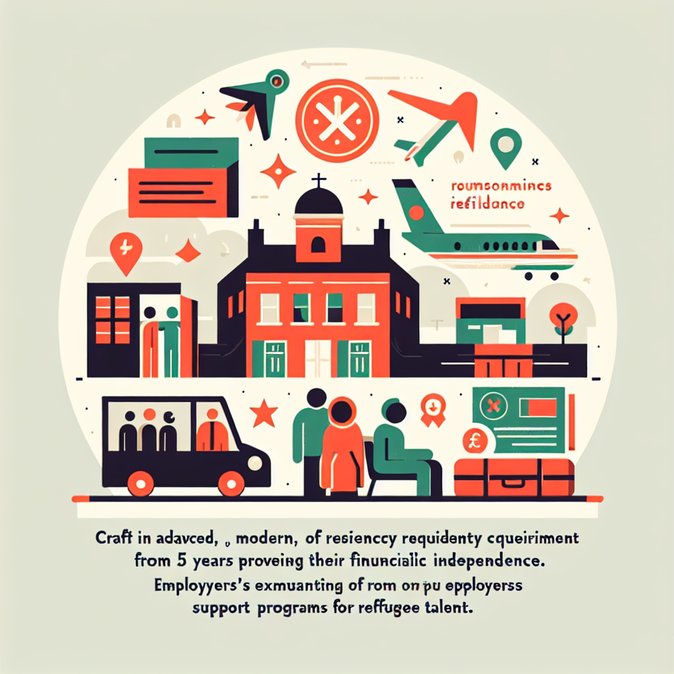
As part of a sweeping migration package, Ireland will lengthen the residence period that refugees must complete before applying for citizenship from three to five years, bringing the requirement into line with all other applicants. The change will be written into the forthcoming International Protection (Amendment) Bill 2025, which received Cabinet approval on 26 November.
Applicants will also have to demonstrate ‘self-sufficiency’: no long-term reliance on certain social-welfare benefits within the two years prior to filing. The Department of Justice will publish detailed lists of excluded payments once secondary legislation is drafted, but Jobseeker’s Allowance and Supplementary Welfare are expected to trigger ineligibility.
![Residency for Refugee Naturalisation Extended from Three to Five Years]()
The policy reflects political pressure to ensure new citizens are economically integrated, yet it raises questions for integration actors who note that refugees often need longer to enter stable employment. Companies that recruit refugee talent—particularly in tech and healthcare—may wish to expand mentoring and up-skilling programmes to accelerate workforce attachment.
Legal practitioners point out that time spent in Ireland under the EU’s Temporary Protection Directive (for example, Ukrainians) will not count towards the five-year clock, a factor that mobility advisers should flag to displaced employees planning longer-term settlement.
While critics see the measure as a deterrent, the Government maintains that faster processing of initial asylum claims (target: 3-6 months by June 2026) will offset the longer naturalisation path, allowing successful applicants to reach citizenship at roughly the same point in their Irish journey.
Applicants will also have to demonstrate ‘self-sufficiency’: no long-term reliance on certain social-welfare benefits within the two years prior to filing. The Department of Justice will publish detailed lists of excluded payments once secondary legislation is drafted, but Jobseeker’s Allowance and Supplementary Welfare are expected to trigger ineligibility.

The policy reflects political pressure to ensure new citizens are economically integrated, yet it raises questions for integration actors who note that refugees often need longer to enter stable employment. Companies that recruit refugee talent—particularly in tech and healthcare—may wish to expand mentoring and up-skilling programmes to accelerate workforce attachment.
Legal practitioners point out that time spent in Ireland under the EU’s Temporary Protection Directive (for example, Ukrainians) will not count towards the five-year clock, a factor that mobility advisers should flag to displaced employees planning longer-term settlement.
While critics see the measure as a deterrent, the Government maintains that faster processing of initial asylum claims (target: 3-6 months by June 2026) will offset the longer naturalisation path, allowing successful applicants to reach citizenship at roughly the same point in their Irish journey.







